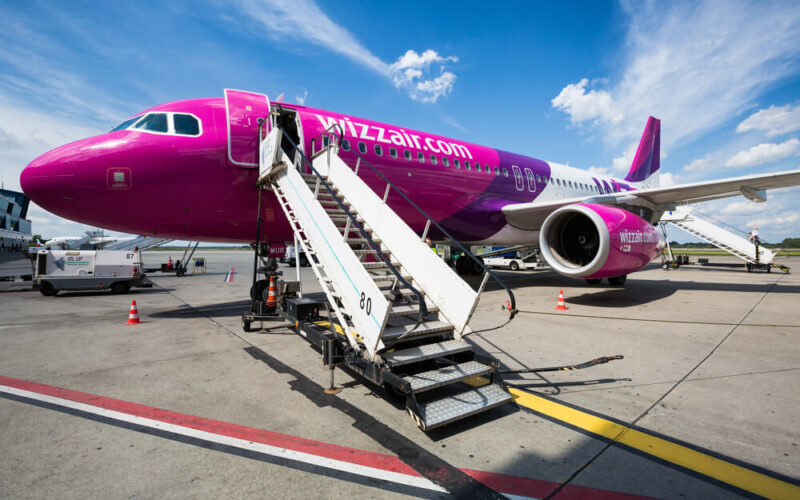The Hungarian low-cost air carrier Wizz Air has optimistic predictions over the potential demand for the flight crew. While being focused on business development, the airline has already recruited and trained 600 additional staff members, including pilots and cabin crew members. However, it seems that such a number of new employees will not meet Wizz Air‘s needs. The company plans to hire 4,600 new flight crew members over the next decade, 300 out of which will be added by the end of 2021.
Currently, Wizz Air is busy working on its pilot recruitment program, following which the carrier aims to expand its workforce by adding 4,600 new pilots by 2030. According to the airline‘s statement dated August 6, 2021, the company encourages both the experienced and inexperienced flight crew to join its Wizz Air Pilot Academy Program and earn the necessary license to be able to operate Airbus A320 and A321 narrow-body jets.
“We are pleased to be recruiting four thousands of new pilot positions at an exciting time for Wizz Air, as we continue to grow our presence across Europe and beyond,” Heiko Holm, the Chief Operations Officer (COO) of Wizz Air was quoted in the statement.
The COO of the airline assured that once the new flight crew members join the Wizz Air‘s team, they would be offered a competitive salary and a benefits package, as well as a “flexible and fixed roster”, while the pilots will fly across the air carrier‘s network, consisting of 800 routes.
“Whether a seasoned pilot with 20 years experience, or an aspiring pilot with no previous aviation experience, we are committed to supporting our crew with a clear career path and opportunities to quickly develop,“ Holm added.
In addition to the flight crew, the Budapest-based carrier also plans to recruit additional cabin crew members in order to meet its fleet and network expansion strategy. The predictions over the workforce expansion were made following Wizz Air‘s expectations to enlarge its current fleet with additional Airbus narrow-body jets by 2030.
A significant increase in air travel demand in Q1, 2021, helped the low-cost carrier to generate revenue of almost €200 million, which is an increase of 119% in comparison to the levels reached in the same period of 2020. However, such revenue was not enough to escape the loss, which reached more than €118 million in Q1 2021 due to prolonged pandemic-related mobility restrictions.

